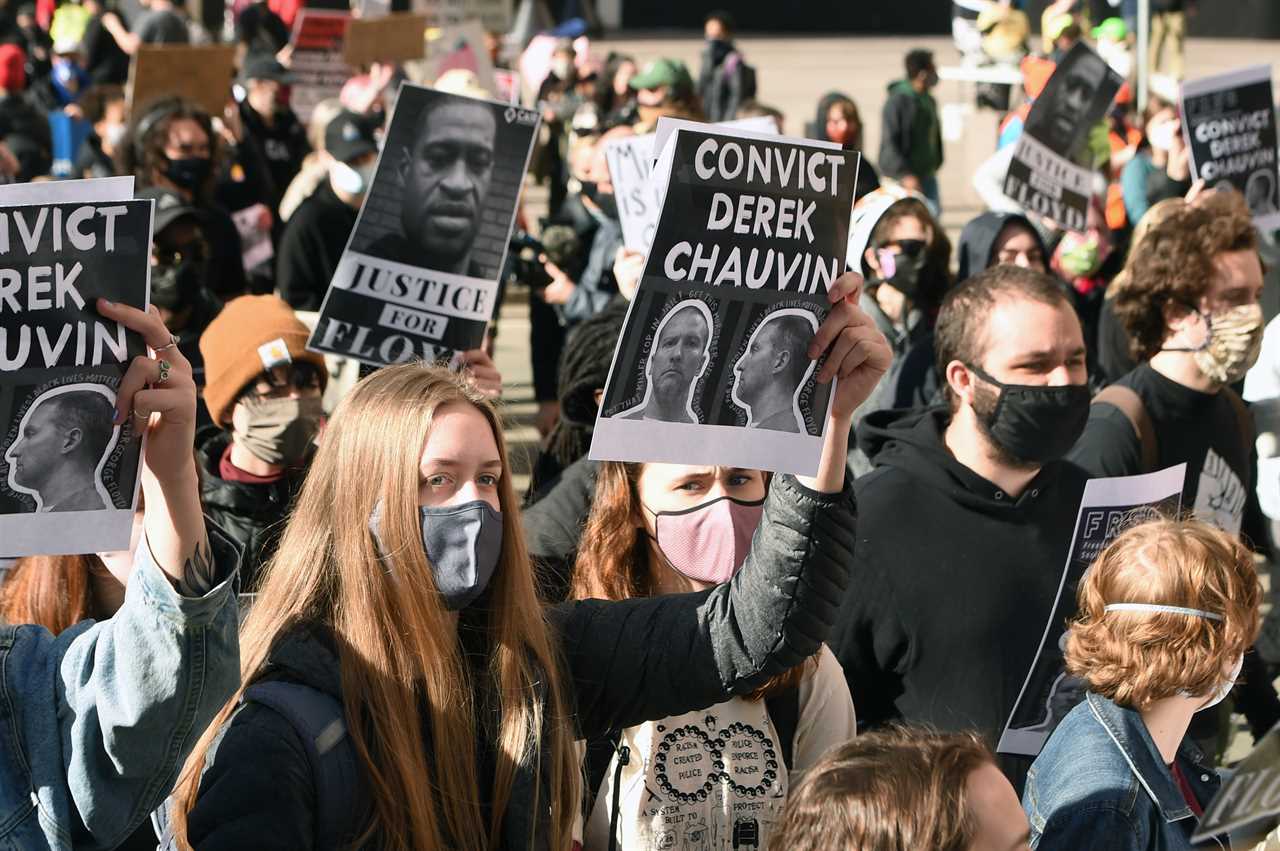
Judge Peter A. Cahill, presiding in Derrick Chauvin’s murder trial, denied a defense motion to sequester the jury. Chauvin, working as a Minneapolis police officer, strangled George Floyd to death last year. His defense wants to keep the rest of the world out.
Following a few other highly publicized instances of white violence against Black people, Floyd’s killing sparked a resurgence of the Black Lives Matter movement, visible in hundreds of overwhelmingly (but not exclusively) peaceful demonstrations across the United States.
Activists came to the demonstration with a range of goals, but prosecuting police who kill was a baseline demand–starting with Chauvin. They want the killer punished, and they want much more.
After the trial started, in neighboring Brooklyn Center, a police officer shot and killed Daunte Wright, a 19 year old Black man who was unarmed.
Chauvin’s attorney, mounting a zealous defense, wanted to keep the jury from learning about another local instance of racialized police violence and, perhaps, recognizing a pattern. News from Brooklyn Center couldn’t help his client. News of the nightly demonstrations in Brooklyn Center, featuring skirmishes with police, incidents of looting, tear gas, and rubber bullets all intensify attention.
And then came reports of police officers stopping and torturing Second Lt. Caron Nazario, a Black army medic (in uniform) who, fearful for his safety, drove to a well-lit gas station before stopping his car in response to police demands. Lt. Nazario fortunately survived to tell the tale–and to file a lawsuit.
Courts are set up to decide cases, not causes. Judge Cahill’s job is to help a jury figure out whether Chauvin committed a crime–not whether there is a widespread pattern of racialized police violence in the United States. And, really, even a conviction of a murderous police officer will do very little to change that pattern–at least over the short term. The Court can convict and imprison a person, but has neither the authority nor the capacity to change police practices across the United States.

Still, the legal system is an attractive target for activists. The adversarial process makes for good drama, and it’s all contained in an easily accessible spot.
Trials are relatively easy for activists to publicize and criticize, and easy for media to cover. And, unlike so much else in American life, there will be a decision at some point in the not too distant future.
The trial in Minneapolis provides a window to national attention that Black Lives Matter can use to remind a much larger public outside the courtroom about larger issues at stake. The Court won’t resolve them, but it can provide a platform. Indeed, activists staged demonstrations outside the Court House when the trial started, a reminder that there were larger issues at stake–and that people would be watching.
The trial also makes both activists and mainstream media more sensitive to new instances of racialized police violence–that likely would not get quite so much attention otherwise.
Police are almost never convicted of crimes for violent acts on the job. Activists may hope that a conviction in Minneapolis will make police departments more aware and change behavior. Last summer’s protests have already changed the climate such that local officials are eager to convey an image of intolerance for brutality. The officer who killed Daunte Wright has resigned, as have Brooklyn’s City Manager and Police Chief. The police officer who threatened and pepper-sprayed Caron Nazario was fired, and Virginia governor has ordered an investigation.
These moves are, really, very small steps–with limited significance by themselves. If, however, they can feed and engage an activist imagination, the world may change.
----------------------------------------
By: David S. Meyer
Title: Cases, Causes, and the next wave of Black Lives Matter
Sourced From: politicsoutdoors.com/2021/04/13/cases-causes-and-the-next-wave-of-black-lives-matter/
Published Date: Tue, 13 Apr 2021 23:33:59 +0000
Did you miss our previous article...
https://consumernewsnetwork.com/politics-us/september-21st-playbook






